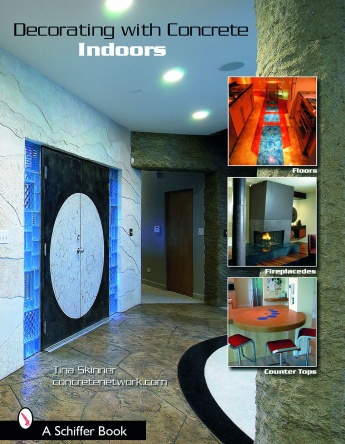Five Questions with Nicole Granath, Sustainability Manager, Novalis




Novalis Innovative Flooring recently named Nicole Granath as sustainability manager for its global operations where she is responsible for defining and guiding the implementation of Novalis’ sustainability strategy. A lifelong environmentalist, Granath served as an advisory board fellow for the Trust for Public Land Connecticut, where she contributed to the successful campaign to conserve a 963-acre preserve. As co-leader of the Responsible Investment at Harvard initiative, she advocated the Harvard University endowment for the incorporation of environmental considerations into its investment decisions. She has also served on the Harvard University Advisory Committee on Shareholder Responsibility. We spoke to Granath from her Shanghai office to learn more about her new role.
FT: What are your year-one priorities?
Granath: The two things that I’m focused on are developing our overall program that we’re going to roll out next January—taking a comprehensive look at our impact in a more holistic way, both the negative and positive places that we impact the environment and our community. With that is the whole slew of the marketing materials around that—the things we give the sales reps and how we frame it on social media. That’s priority number one. Under that, about 60% of the time is me developing a take-back program that is viable—and not just something that we have so that we can check it off as an end-of-life option—but something that we pilot with a big customer and then have incentives in place so that it’s seamless and doesn’t require effort on their part.
Number two is putting in measurement abilities for water waste, carbon, and electricity. At the factory, they’ve been doing that tracking for a number of years, which is great, but we have seven facilities across Shanghai, and our footprint is bigger than just the factory. So, I want to get those measurements in place. Those are my goals for from now until December.
FT: Sounds like an accelerated pace for your first few months.
Granath: When I first joined, someone said they worked at other places where there were all these checks and balances and you had to get this and that approved. The thing about Novalis is they put good people in place and then they trust them, which is a little scary sometimes because then you can just go do it. I’m sure that the first-take back program I pilot there will have 10 problems that I didn’t even think of and then we’ll have to go back to the drawing board. That’s how we’ll know that that option doesn’t work.
FT: Is it a challenge to get a customer to pilot a take-back program with you?
Granath: I’m thinking what is going to make the most sense is finding a way to partner with an organization that is distributed across both the U.S. and China, distributed so that it has a footprint that more or less matches some of our big customers. Because if you try to say to a customer, “Hey, by the way, when you’re done with the flooring in 10 years—say you have a three-year upgrade cycle for a hotel—and if you are still in your job, can you give us a call then and make sure that your contractor doesn’t throw out the product? Oh, and then can you ship it back to us?” No way.
Jeremy Whipple, the head of commercial development for Ava in the U.S., made the point that no one is going to participate in this until someone can find a way to make money off of it. You have to reduce those friction points. Here are their donation points, they have volunteers, we’ll do the pickups. It’s very different, obviously, in China than in the U.S., because they’re like, “Why do you care about what happens to your flooring after it’s used up?” There is a dedicated contingent of sustainability people who really get it, but it’s going to be the logistics of matching a distributed partner network across the distributed customer network.
FT: It will be interesting to see how the programs differ from the U.S. to China.
Granath: The nice thing in the U.S. is there’s already more cultural buy-in. In China, there’s a very high standard of living in Shanghai and Beijing and Shenzhen, but then a very large portion of the country is still just trying to make sure that they have roofs over their heads and can keep up with the crazy-high rent, and people who have to leave their villages and work and live in migrant towns around the tier-one cities. So, understandably, they have some other things on their mind. It’ll be just a slightly different approach of more fitting it into how we are helping them rather than appealing to the sustainability senses of the consumer in the U.S.
FT: How would you describe the difference in viewpoints surrounding sustainability?
Granath: Architects and designers in China have a lot of international exposure. They’re design-oriented, they’re creative, they have to keep with the trends in the space. Asia itself is unbelievably innovative when it comes to sustainability in a lot of ways because there are challenges there that aren’t in the Western world, mainly air pollution and crowding that we don’t see even in cities like New York.
We have been very involved in LEED and WELL projects in China. We just became an IWBI, [International WELL Building Institute] member, and we’re going to be working more closely with them because we contribute WELL points across air, mind, biophilia, the ultra-low volatile organic chemicals that we contribute to the overall air quality. It seems like in Shanghai and Beijing there’s more awareness of programs like WELL than there is in the U.S. where there is more awareness of LEED.
Looking for a reprint of this article?
From high-res PDFs to custom plaques, order your copy today!










